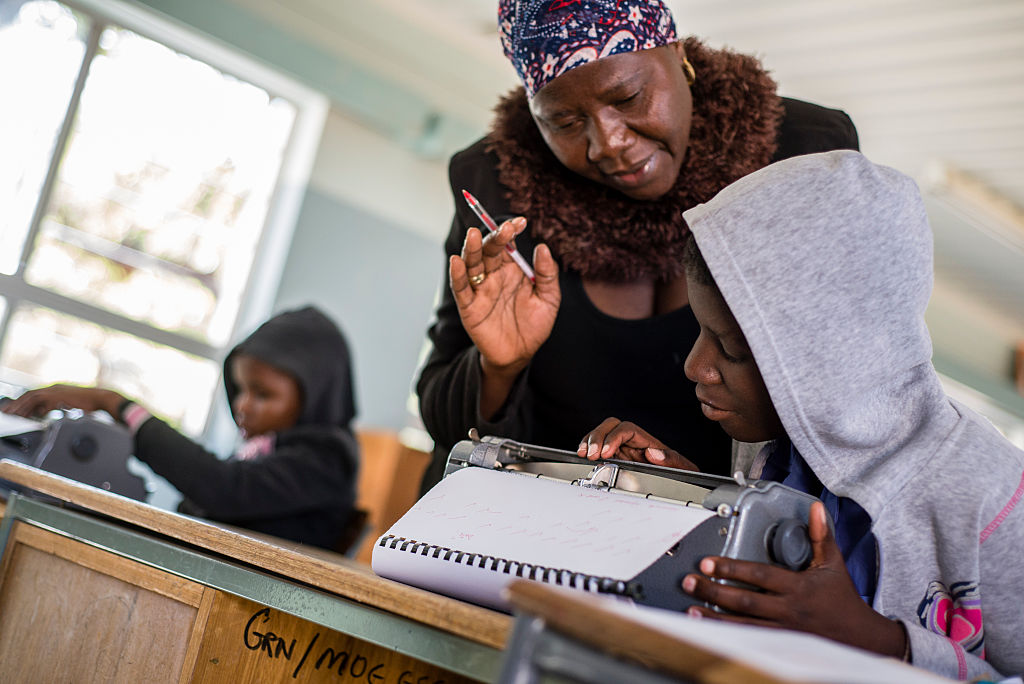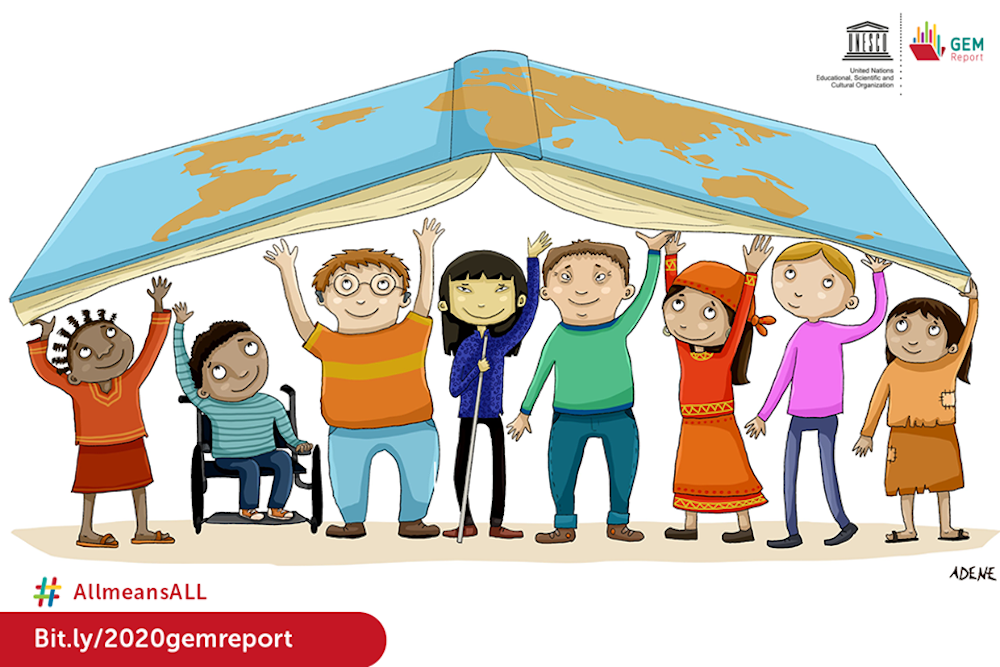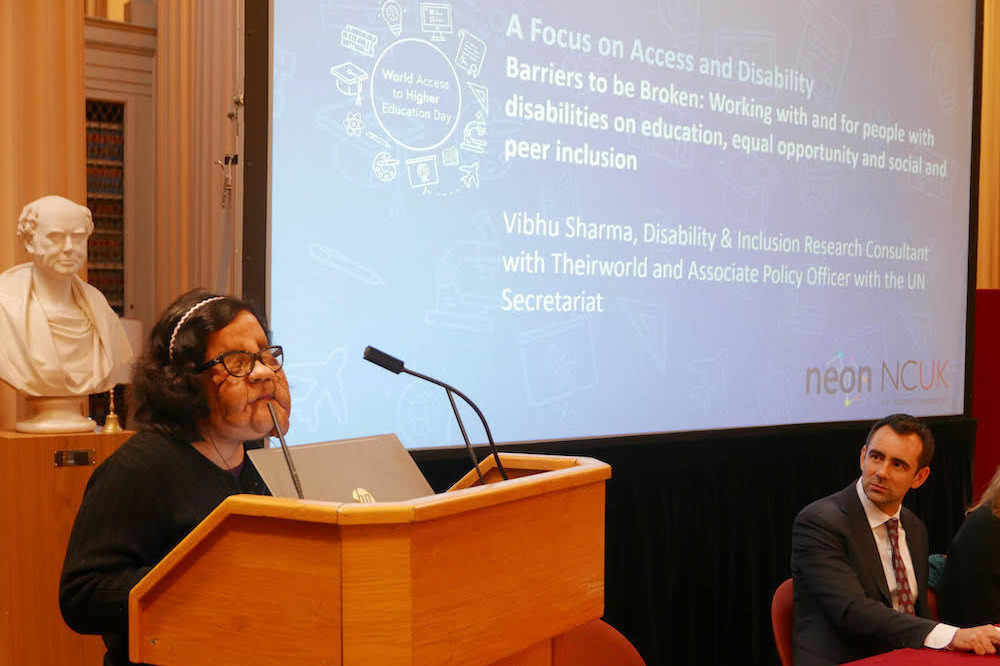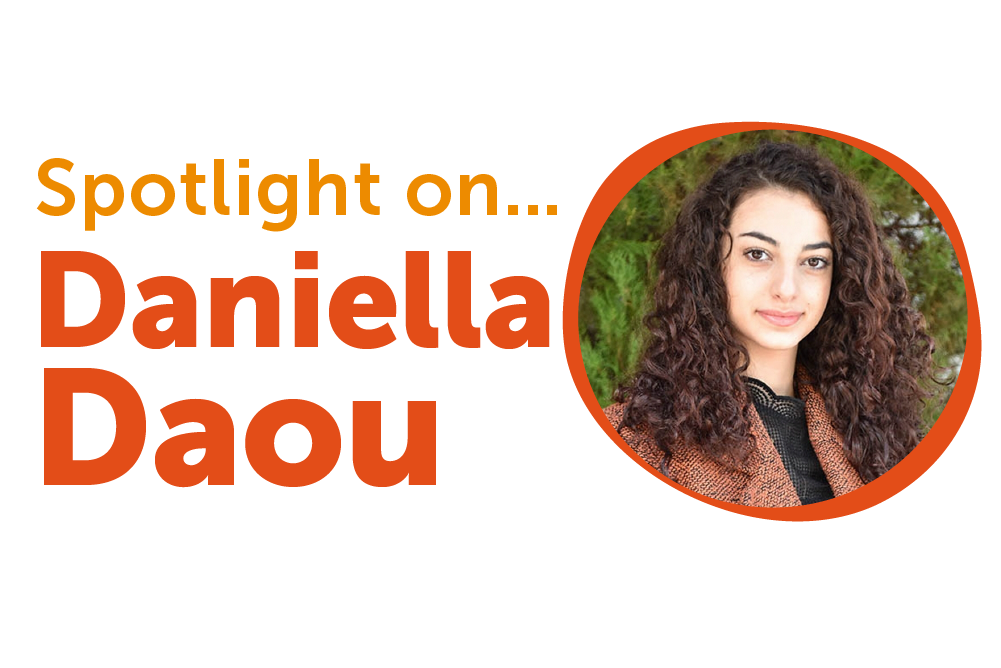
Pandemic is pushing marginalised children even further from education

Children with disabilities
Theirworld's disability and inclusion consultant says inclusive education must be widened to include all learners regardless of background, identity and ability.
The coronavirus pandemic is making education even more of a challenge for the world’s marginalised children, Theirworld’s disability and inclusion consultant has warned.
Vibhu Sharma appeared today in a high-level discussion which explored how governments, international organisations, UN agencies, donors and civil society groups can work together to ensure a strong focus on inclusion in education.
“We still live in a world where people’s identity, background and ability continue to dictate their educational opportunities,” said Vibhu. “The Covid-19 pandemic is only going to amplify these challenges by pushing children who are already marginalised into even greater marginalisation, as they have been unable to cope with remote learning or have not had access to it.”
The discussion followed the publication of UNESCO’s 2020 Global Education Monitoring (GEM) Report on the theme of inclusion. It said quality education should be available to every young person in the world – regardless of gender, disability, ethnicity, identity, language or any other factor.
But Vibhu said there is now “a very disturbing picture of discrimination and exclusion”. To achieve the Sustainable Development Goals target of quality and inclusive education for all, she said: “We need to widen the understanding of inclusive education to include all learners regardless of their background, identity and ability. We must embrace the fact that inclusion cannot wait.”
That was backed by Gordon Brown, UN Special Envoy for Global Education, who told the event: “Never was the theme inclusion for all more important. We need a campaign to save our future built around this report.
“We have to hold to the dream that in the next 10 years that every single child in the world has the chance of an education. We have to develop all of the potential of all of our children.”
The 2020 GEM Report revealed that disadvantaged learners in 40% of the world’s poorest countries have not been supported during the health crisis. As schools begin to reopen following the worldwide shutdown, UNESCO urged governments to focus on children and youth in danger of being left behind because of their background, identity or ability.
“Barriers to quality education are still too high for too many learners. Even before Covid-19, one in five children, adolescents and youth were entirely excluded from education,” said Audrey Azoulay, Director-General of UNESCO. “Stigma, stereotypes and discrimination mean millions more are further alienated inside classrooms.”

Vibhu Sharma giving a talk at Edinburgh University in 2019 (Patricia Senge)
The annual GEM Report monitors progress across 209 countries in achieving the education targets adopted in the Sustainable Development Goals to be achieved by 2030. It found that only one in 10 countries have laws to ensure full inclusion in education – and exclusion has only got worse during the school closures that affected 90% of the world’s students.
Here are some of the key findings and statistics:
In all but high-income countries in Europe and Northern America, only 18 of the poorest youth complete secondary school for every 100 of the richest youth.
In at least 20 countries, mostly in sub-Saharan Africa, hardly any poor rural young women complete secondary school.
While 68% of countries have a definition of inclusive education, only 57% of those definitions cover multiple marginalised groups.
One in three teachers in 43 mostly upper-middle- and high-income countries in 2018 reported that they did not adjust their teaching to students’ cultural diversity.
On students with disabilities, laws in 25% of countries (but over 40% in Asia and in Latin America and the Caribbean) make provisions for them to be educated in separate settings, 10% for integration and 17% for inclusion. The remainder opt for combinations of segregation and mainstreaming.
About 25% of teachers in 48 education systems report a high need for professional development on teaching students with special needs. Just 41 countries recognise sign language as an official language.
In Europe, 23 out of 49 countries do not address sexual orientation and gender identity explicitly in their curriculums.
In 26% of countries, the definition of inclusive education only covers people with disabilities or special needs.
Four African countries ban pregnant girls from school, 117 countries allow child marriage and 20 have not ratified the minimum age convention to prevent child labour.
More news

